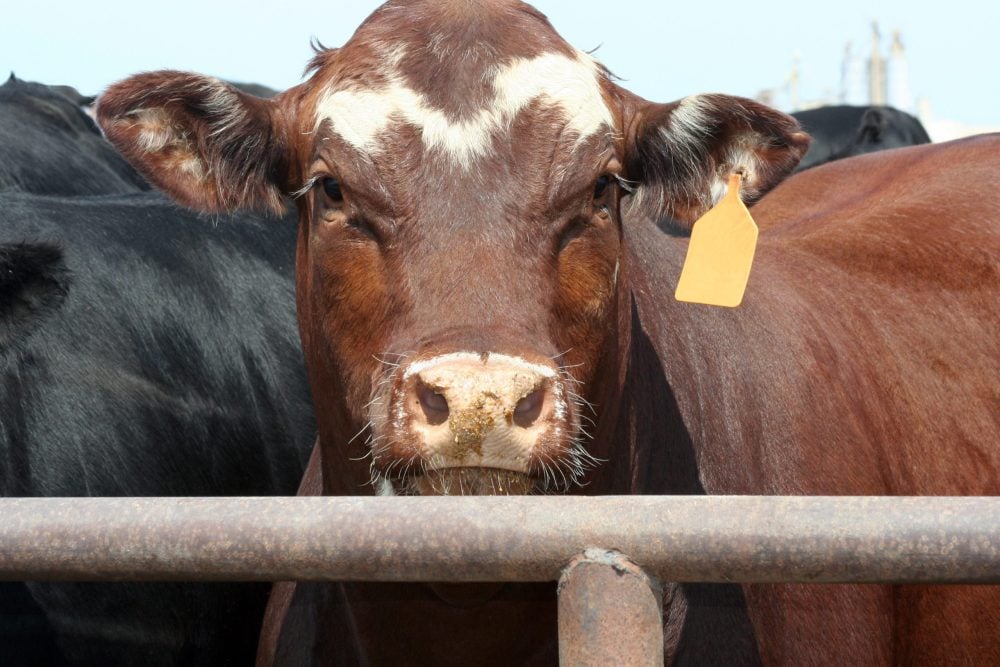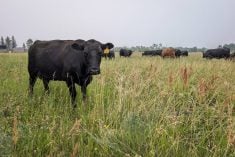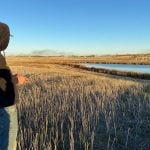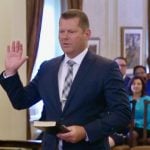New legislation that’s meant to protect fish in British Columbia’s waterways, and has already been used to turn off some ranchers’ pumps, has others concerned for their water rights.
The province last month brought amendments into force for its Fish Protection Act “in anticipation of a need to protect fish populations in times of drought.”
Section 9 of the Act now allows for ministerial orders to temporarily regulate water users, regardless of the terms of their water license, the province said — that is, as long as water levels are low due to drought and survival of fish populations is or may be threatened, and only after “due consideration” is given to agricultural users’ needs.
Read Also

U.S. livestock: Cattle futures plunge daily limits on beef price fears
Reuters — Most Chicago Mercantile Exchange live cattle and feeder cattle futures contracts fell their respective daily limits on Friday,…
Environment Minister Barry Penner on Sept. 18 put the province’s new powers to use by ordering a “temporary curtailment” of water use by irrigators and others on the Nicola River, upstream from Nicola Lake.
“Due to low winter snowpacks and drought conditions this summer, water flows in this area are extremely low and the kokanee (salmon) population are expected to begin spawning soon,” the province said that day.
Thus, ranchers in the affected area were ordered to shut down their irrigation. Mike Rose, manager of the Quilchena Cattle Co. at Quilchena, about 70 km south of Kamloops, reported that he received an order to “cease diversion of water for irrigation” from the Nicola until Sept. 30.
“Water conservation efforts made by you, and other water licensees within the watershed, have not been sufficient to mitigate the threat to the fish population,” Penner wrote in a letter to Rose last week.
According to Rose, the ranch, where alfalfa is grown under irrigation, depends on the third cut it was unable to get once the wheel lines were shut down, and will now have to haul in feed. He had offered to reduce water use, he said, but was ordered to halt pumping completely and immediately.
Rose contended that there have been several occasions in the past 75 years when flows on the Nicola are documented to have dropped lower than current levels and the kokanee have kept coming.
“Uncertainty”
The ranch is also concerned about the legislative language that gives the minister the ability to impose temporary orders “regardless of precedence under the (provincial) Water Act” — and what that implies for the value of irrigated farmland.
Although the province said last week that “most water licensees within the watershed are supportive of this approach and have been implementing voluntary water conservation measures,” the B.C. Cattlemen’s Association said earlier this week that the new approach has created “a great deal of uncertainty” for local ranch families.
“Although no one will disagree that water is critical for fish, this resource is also important for the ranching families that provide food for our province,” the BCCA said in a statement Monday.
“Ranchers in the Nicola Valley have been hard hit this year by successive droughts and have demonstrated their commitment to water conservation and stewardship,” the BCCA said.
For example, the affected ranches have already used the BCCA’s Riparian Stewardship Program to help make about $100,000 worth of improvements in the Upper Nicola River, such as fencing stream banks, setbacks for livestock water troughs and low-flow nozzles on irrigation lines. The BCCA said the ranchers have voluntarily cut their water use back to 45 per cent of their licensed allotments.
“We can’t help but feel that the confrontation surrounding this situation could have been avoided,” the BCCA office said in an e-mail.
The BCCA added that it intends to bring up the new policy at the next meeting of the province’s new ranching task force, which first convened in June and is expected to make recommendations to Agriculture Minister Steve Thomson by this fall.
Furthermore, the BCCA said Monday it “strongly feels that when agricultural water users have their access restricted, through no fault of their own, that government needs to compensate ranchers for the loss of forage production.”
















